Windrush 75 at Paxton House
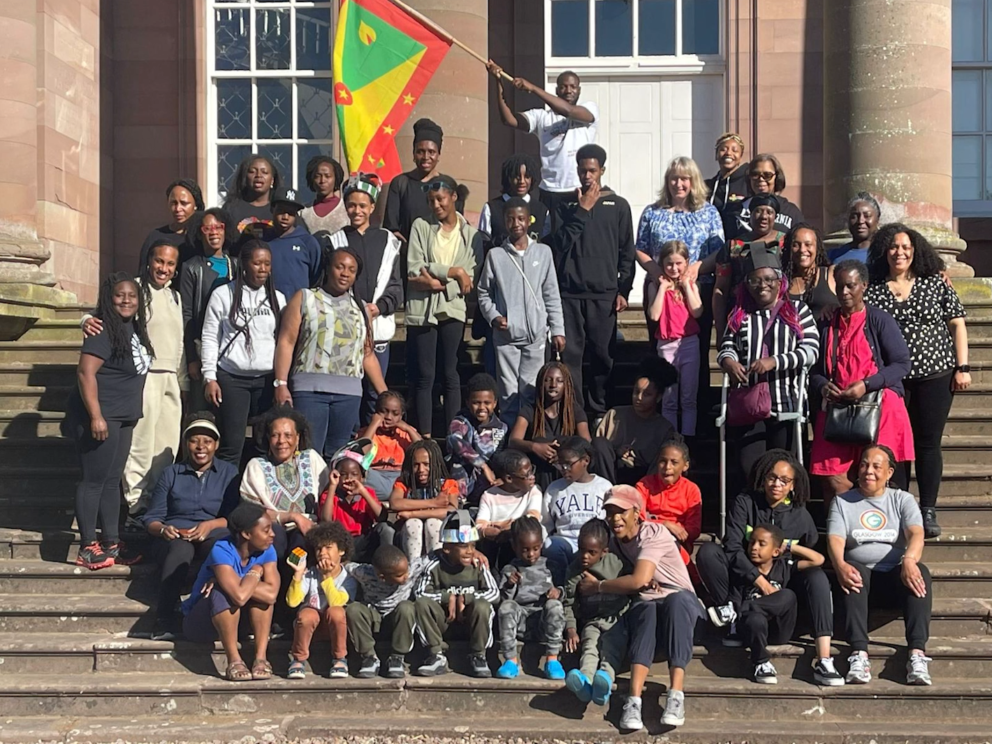
As the country marks 75 years since the arrival of HMT Empire Windrush on 22 June 1948, we are reflecting on the impact on British history of some of the events played out at Paxton House. The arrival of this one ship has stayed in the public consciousness as a crucial marker in the mass migration of Caribbean people into Britain but in fact it is just one point in a long relationship between Britain and the West Indies. The Windrush Generation now defines the people who arrived just after the passing of the 1947 British Nationality Act gave the right to work and settle in Britain to people all over the then British Empire. It’s a common misconception that HMT Empire Windrush carried only Jamaican passengers but there were also people from other islands, including Grenada, and it is with Grenada that Paxton House has the strongest ties.
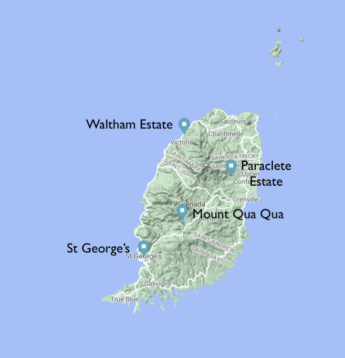
Paxton House & Grenada
The history of Grenada is complex. About the size of Birmingham, the island lies in the Southern Caribbean, part of the Grenadines. It earns its nickname as the Island of Spice because of its extensive modern day nutmeg plantations. Christopher Columbus tried several times to land there in the 1490s but was driven off by the indigenous inhabitants. The island was finally colonised by the French in 1649. It didn’t become British until 1763, when it was handed over as part of the Treaty of Paris which ended the American Revolutionary War. Now Ninian Home, who became the owner of Paxton House in 1773, enters the story. He first bought a plantation in Grenada shortly after the island became a British possession and rose to be Lieutenant Governor. He was killed in 1795 in an uprising inspired by the ideas of the French Revolution. The uprising failed and Grenada remained a British territory until independence in 1974. The majority of today’s population is descended from enslaved people brought from Africa to the Caribbean where they were put to work by French and British planters who grew sugar on labour intensive plantations. At Paxton House, you can see a unique series of contemporary paintings of one of Ninian Home’s plantations on Grenada in 1789 by the Scottish landscapist Adam Callander. Read more about Paxton House’s Caribbean Connections.
As one of many Scots with family connections to the 18th century history of slavery in Britain’s Caribbean colonies, John Home Robertson, an indirect descendant of Ninian Home and Trustee of Paxton House, was keen to celebrate the bicentenary of the abolition of the slave trade in 2007. He sought advice about Grenadian people in London from former Acton & Shepherds Bush MP Clive Soley, and was introduced to Margaret Noel, the founder of Descendants. Today, the Paxton Trust has forged a strong ongoing relationship with the Descendants community group. We asked Margaret Noel to share with us her personal experience as a Briton of Grenadian descent to mark Windrush 75.
Child of the Windrush generation
“Grenada, land of my birth!
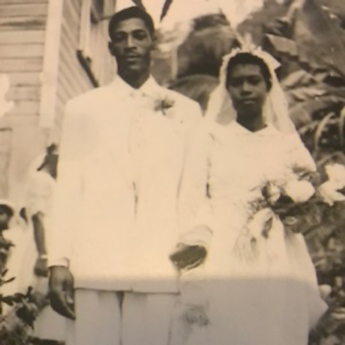
My Father took the call and left Grenada in the 50s to help rebuild England after World War Two. My Mum followed in 1958. In 1961, my parents sent for me and my younger sister. We had been left with our Great aunts, who lived next door to each other. Although we missed our parents, we were surrounded by cousins and family members. Despite finding a hostile and racist environment, my parents worked hard and sent barrels, packed with the necessary food items and dolls and clothes for our family in Grenada.
The day arrived; my sister and I dressed up in our finest. Our uncle Sidney had the task of bringing us to England. We hugged, embraced, and kissed our Great Aunts, tears rolling down our cheeks; we did not want to leave our home, but we really wanted to see our parents, we really could not remember what they looked like.
In Grenada, we went to a Catholic school on Grand Anse beach, education was encouraged by my aunts, and I was already 2 years ahead of my age group. I had also made my first holy communion. I was sad to be leaving that beautiful house, full of family, the beach, and the beautiful, deep blue sea.
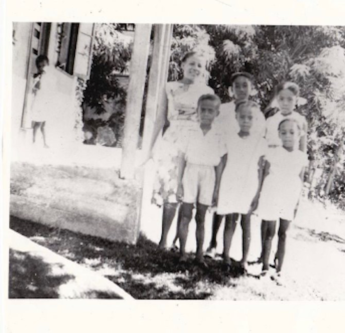
The Voyage to Britain
We arrived at the wharf and said our last goodbyes as we were guided by the sailors to the small boat that was going to take us to the main boat. We waved and waved until the figures disappeared.
The journey took 3 weeks, sailing to many places on the journey. When people ask me, “What it was like on the boat?” My sister and I have very few memories. One thing stuck with me, was ‘cornflakes’, I had never tasted anything so tasteless! I also remember there was a party on the boat and I was given a rubber doll, I know I did not like my doll. My sister was given doll house utensils.
We sailed into Tilbury Docks, and then took the train to London; our parents were there to meet us. My sister did not recognise our dad and said “That is not our Dad”. I just accepted it as my Mum greeted us so warmly, I could feel the love and the longing to see her two daughters again after such a long time apart.
Life in a New Country
We travelled to our new home. We were shocked; we had been living in a house, now we were living in a small flat in Ladbroke Grove, Hazelwood Crescent. My uncle would also be sharing the space as they worked shifts, so when one went to work and we went to school, my uncle slept and worked nights. My mum worked in Lyons Cake Factory and my dad worked on the railways. We did not have baths in the house so we had washes. Every week we would go to the public bath by the Penny Ha’penny Steps to have a soak and a full bath. We moved to Southam Street, also in Ladbroke Grove, which had a bigger front room where my parents slept – there were still no baths, but there was a toilet to share with another family. We finally moved to Acton in the late 1960s where we had our own self-contained flat with toilet, bathroom, and three bedrooms.
My sister and I could not get into any Catholic school, so we attended St Stephen’s Church of England Primary School. School life was difficult as I was not allowed to write joined up and got hit with a ruler until I stopped. We also got a lot of teasing from the children about our hair, and I can remember begging our mum to straighten our hair with the hot comb, to stop the teasing. Our school holidays were spent with a day at the seaside.
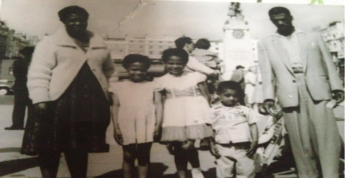
I moved to North Paddington Secondary school and was put in the ‘Dunce’ class where most of the children were Caribbean. After two years, it was finally noticed I should not have been in that class, and I was moved to the ‘O level’ class. A lot of damage had been caused as I had missed out on so much education. I then had to fight to catch up. There were many obstacles throughout my education. Like many other Black children in my secondary school, we were ushered towards sports, and I won many accolades in athletics, netball, and hockey.
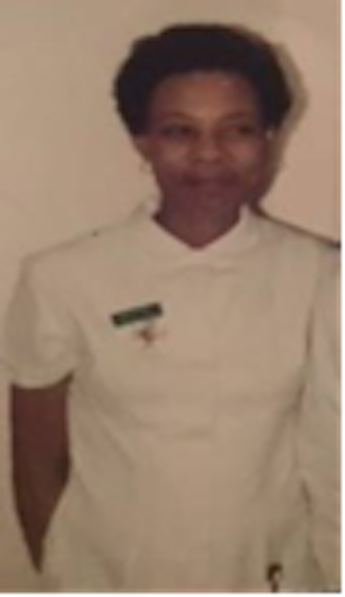
Making a Difference
After leaving school, I entered the nursing profession, trained as a state enrolled nurse, to my Mum’s delight. After leaving nursing, I retrained and qualified as a probation officer, working in the courts, prison, and the community.
As a parent, I vowed that what happened to me at school, would not happen to my children. I was going to make sure they did not face the same discrimination and being held back because they were Black. I sent them to Mr Carter’s Saturday Supplementary School. I became active at my daughters’ school, joining the PTA. At secondary, I challenged many discriminatory practices, and I was put forward by the Headmistress to become a Foundation Governor at a new West London Catholic College. This was an eye-opening experience. My stance was I had every right to be at the table, and I was not taking ‘no!’ for an answer.
Descendants was established in 1993, with my family, parents, and community members. The charity came about after a performance at St Vincent’s, my children’s catholic primary school in Acton. I also drew on my personal experiences as a youth worker, and whilst working as a probation officer after seeing so many Black men in prison. Additionally, there was the shocking racist murder of Stephen Lawrence. These episodes were the catalyst to setting up Descendants in 1993, now 30 years ago this year. In 2005, Descendants established Achievement awards, to recognise publicly the achievements of children and young people, now called the Dr John Roberts’ CBE QC Achievement award, run annually and now in its 18th year.
I have lived in the UK since the age of eight, 62 years ago. My children were born here, my grandchildren were born here, my question to you is when does a Black person become British enough? I love Grenada, my country of birth, but I live in the UK and intend to remain here, despite all the obstacles.
The brutal killing of George Floyd actually made more people across the world protest and speak up about injustice and racism, demanding changes. Here in the UK, it became a catalyst for more open exchanges. As a Black person, it felt like we became more visible.
Since I arrived in the UK in 1961, change has been slow, but I believe positive changes will happen in the future as more young people question and exercise their rights to be treated fairly and are taking opportunities now open to them.”
Margaret Noel, June 2023
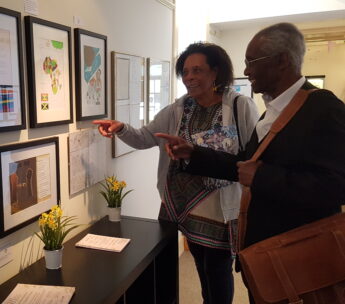
Descendants is a history and arts focussed organisation aimed at children and young people, primarily, but not exclusively, of African and Caribbean descent. A group from Descendants last visited Paxton House in Summer 2022 for a special Caribbean Celebration Day.
Visit our Caribbean, Sugar & Slavery Exhibition which was achieved in consultation with Descendants.